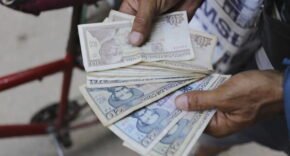Since the end of the second world war, the United States has consistently been the dominant global superpower. The Soviet Union vied for superiority during the Cold War but ultimately failed as it lost control of its satellite states. This was evident when the Berlin Wall came down in 1989.
In recent years, American hegemony has been challenged by China, a nation which has accumulated tremendous wealth since opening up its economy to the world. China now seems poised to usurp global power as it continues to engage in a form of financial imperialism across the globe (for more, read Joanna Chiu’s “China Unbound”). Today, both Russia and China are part of a global cadre known as BRICS, which includes Brazil, India and South Africa — with other countries, such as Turkey and Saudi Arabia, perhaps waiting in the wings to join as well.
In case you haven’t been paying attention, the world is undergoing a major paradigm shift, with BRICS at the center. Banks across the world are failing, Saudi Arabia and Iran are negotiating historic peace talks and countries are beginning to deviate from the U.S. dollar as the world reserve currency.
An important question to consider, then, is how does the current state of geopolitics and macroeconomics shape the future of a hyperbitcoinized world? I acknowledge that nobody can predict the future with any real certainty, however, I would like to share my vision of how game theory plays out over time.
I believe that, over the next few decades, the emergence of BRICS as an alternative to U.S. hegemony will cause the global economy to evolve in three phases: Phase one will be a pivot from a unipolar financial world to a multipolar one. In phase two, Bitcoin becomes a medium of exchange and unit of account for many nations. In the third and final phase, we experience real hyperbitcoinization.
PHASE ONE: FROM USD TO GOLD
Most people have no idea that this is even happening, but we are already in the early stages of phase one and the creation of a multipolar world.
In the 1970s, under President Nixon, Saudi Arabia agreed to price its oil in U.S. dollars in exchange for military defense. Essentially, every other country was forced to hold U.S. dollars as a result, thereby making it the global reserve currency. Having such an exorbitant privilege means that every time the U.S. government decides to print money, it can essentially purchase oil for free. As a result of being the global reserve currency, U.S. treasuries became the safest asset for investors to own (I know this statement seems comical today). The consensus has been that there is zero chance that the United States will default on its own debt, since it can print ad infinitum. Nation states have purchased enormous levels of U.S. debt for over 50 years.







